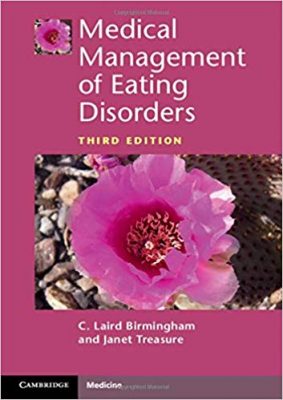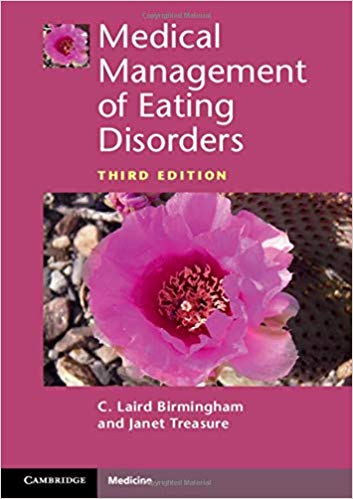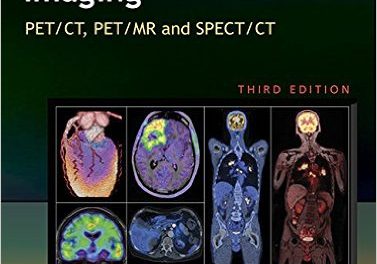 Authors: C. Laird Birmingham and Janet Treasure
Authors: C. Laird Birmingham and Janet Treasure
Publisher: Cambridge University Press – 219 pages
Book Review by: Nano Khilnani
This is an easy-to-use, small handbook of a little over 200 pages with five concise, action-focused sections that quickly answer the ‘journalistic’ questions: what, why, who, and how, after some discovery of when and where the disorders were developed by the patients.
Section I is primarily focused on the ‘what’, Section II on the ‘why’, and Sections III, IV and V mainly on the ‘how’ to treat the patients and help them overcome their eating disorders.
- Section I – Definitions and Prevalence
- Definitions and Epidemiology
- Section II – Cause
- Causal and Maintaining Factors
- Section III – Diagnosis and Clinical Features
- Obtaining the History and Physical Examination
- Complications by System
- Complications of Nutritional Therapy
- Laboratory Testing
- Section IV – Differential Diagnosis
- Diseases That Can Mimic Eating Disorders
- Section V- Course and Prognosis
- Course and Prognosis
- Agreeing on a Goal Weight
- Reducing the Risk of Death
- Section VI – Treatment
- Evidence-Based Approach for the Treatment of Eating Disorders
- Specific Psychological Therapies
- Medical Management
- Managing Medical Complications
- Reducing Treatment Refusal and Preventing Relapse
- Reducing the Treatment Gap by Self-Management
That this book is now in its third (2019) edition speaks well of its effectiveness and usefulness to clinicians and physicians for the last dozen years, with its first release in 2007, followed shortly by the issuing of its send edition in 2010. .
Between the two them, the authors C. Laird Birmingham and Janet Treasure have 65 years of experience in treating people with eating disorders. To have had 35 and 30 years respectively, points to the fact that they have had success helping their patients get rid of their disorders.
As for my experience reading this book, I found it a pleasure. It’s a practical and useful guide to those professionals (and laymen, such as relatives and friends of those afflicted with the disorders) who want to help those afflicted with the disorders to overcome them.
Authors:
Laird Birmingham is Professor in the Department of Psychiatry at the University of British Columbia, where he was previously Professor of Medicine. He has been treating people for 35 years as inpatients, outpatients, and in residential care. He has pioneered several new internationally recognized treatments for eating disorders.
Janet Treasure is Professor in the Institute of Psychiatry at Kings College London and is the Chief Medical Officer for Beat, the UK’s main eating disorder charity. She has received a lifetime achievement award by the Academy for Eating Disorders (AED) for the work she has done over her 30 years in the field of eating disorders.







